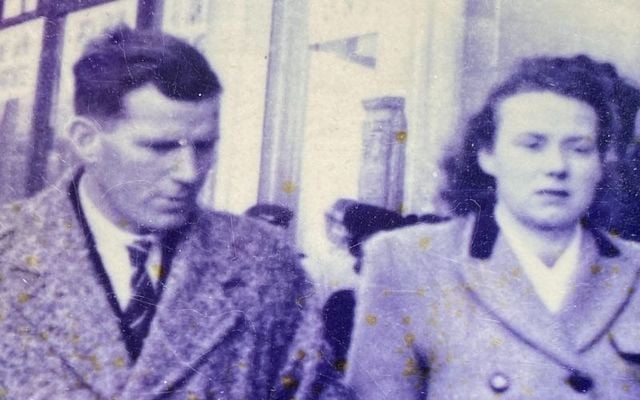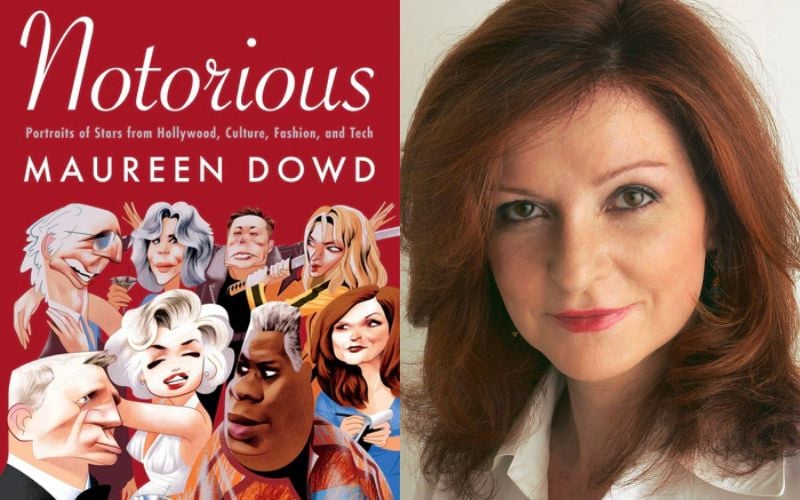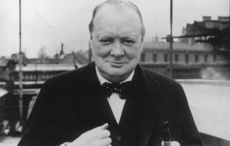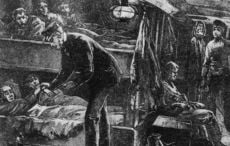My mother, Kathleen Devins, was remarkable. She suffered more tragedy in life than anyone ever deserved. She kept it mostly secret from us, her seven children, and it is only now my six siblings and I fully understand her profound loneliness that was part of her passage through her life.
She was a Clare woman, born in 1918. Her family’s encounters with life’s uncertain fate began when her father Joe Devins, a shopkeeper and avid sports follower had gone to Fairyhouse racecourse near Dublin, in Easter 1916 to watch the Irish Grand National. While he was there a revolution broke out.
My grandmother waited for his return, more desperate every day as news of the fighting spread. The local clergy were ready for the final arrangements. After a week, he arrived having walked the 150 miles home and sleeping in fields.
It was the first of many crises that would cross my mother’s family's path.
Her roots were in Sligo, where her grandfather was a legendary teacher and local sage still remembered in his village there as "An Maistir" - The Master. Her father had moved the family to Ennis in Clare some 150 miles or so away after buying a general store
It was a time when the storm clouds were gathering both in Nazi Europe and in my mother's family but when she told us stories growing up she kept to the bright side. She loved to go to Foynes in Limerick, where the flying boats came in from America, captained by handsome young Americans who were the apple of every young girl’s eye. She considered nursing in Britain as her sister May was set to go. Then came the hammer blows.
Her pet brother Joe was an outstanding rugby player but in one moment his life came to an end. He was about 16 when he got an accidental kick in the head playing rugby and died a few days later from meningitis. The grief was profound.
Read more
Then Bill, her other brother, joined the RAF to fight Hitler. He was shot down on the very last day of the war in May 1945 while under fire from German warplanes threatening the civilian population off the Norwegian coast. Only later in life did we read the letter from his commanding officer announcing his death to her family, showing what a remarkable young man he truly was. He left a diary, full of details of his ordinary life, and how happy he was to be going home after one last mission. Of course, he never returned, his body lost at sea. His name is on a monument at RAF HQ in Britain as are the names of thousands of missing military heroes who fought Hitler.
Then her father died, struck down by a stroke in his mid-forties, brokenhearted by the loss of his sons. Suddenly there were only three of them: my mother, her sister May, and their mother.
Amazingly, none of her seven children knew this story fully, growing up in Tipperary where we lived after my mother had met my father when she was a pupil in his Irish language class. Raising seven kids on a teacher's salary was no easy task but all the neighbors were in the same boat, poor by today’s economic standards but rich in family and community ties.
As kids, we lacked for nothing and fulfilled our dreams thanks to our parents.
Throughout her life our mother never imposed any sense of self pity about her tragic early life, In fact, I’d wager none of us knew but fragments of the story.
The only signs in retrospect were that she was overprotective and became apprehensive if one of us stayed out too late or didn't show up somewhere.
She wanted above all to protect her kids and ward off the malevolent spirits that had affected her childhood so much.
Very late in life, she opened the door a little to her sorrows but at a time when we were all old enough to understand and deal with it.
I think of her today on Mother's Day as my heroine, who never gave up despite life's brutal blows and saw all her children safely educated and successful. Her sorrow was for her alone to bear. She became a doting grandmother, free at last to love unconditionally and not fear for her babies. She was truly a mother for all ages.
Happy Mother’s Day to All.
Read more
* Originally published in 2023, updated in March 2025.




Comments